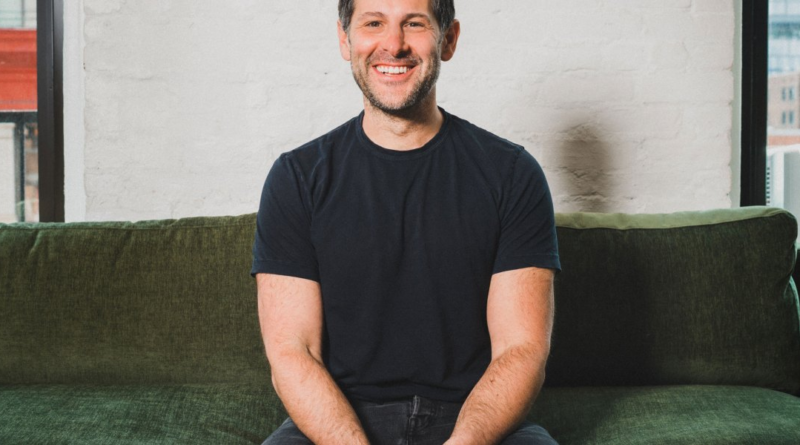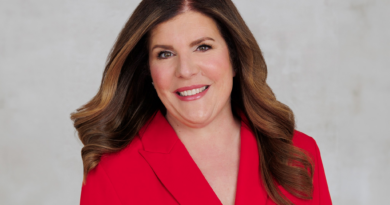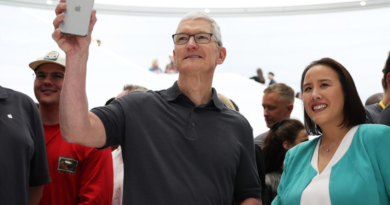Restaurant app Blackbird uses crypto to reward loyal customers: How it’s going one year in
Ben Leventhal would rather tell you where to sit at a restaurant than what to order. “If you go to Balthazar, sit on table 62,” he says, sipping his tequila. “It’s on the left side of the room and you’ll get the best views.”
Over the last two decades, the fortysomething New Yorker has been instrumental to the rise of foodie culture. First he told us where to eat, launching news site Eater in 2005—since acquired by Vox Media. Then he helped us to reserve tables, cofounding Resy in 2014, which catalyzed “reservation culture” by funneling the availability of more than 16,000 restaurants into one app. Today, he is immersed in his latest restaurant tech venture: Blackbird Labs, a shared loyalty program for eateries, where diners receive points in the form of crypto tokens.
For Leventhal, the new venture is about more than finding a new way to blend technology and cuisine. At a time when many small restaurants face existential threats to their business model, he hopes Blackbird can provide them with a new level of economic savvy—and in doing so, keep alive the sort of venues he describes as his “happy place.”
Dining out takes off, yet restaurants are in decline
On a somber August afternoon in Manhattan, Leventhal knows just the place to escape the showers darkening the city: NoHo’s dark and trendy Temple Bar where menus and faces are read by candlelight, no matter the hour or season. With mahogany walls, a checkerboard floor, and pay phone, the 90s decor pays homage to the decade when the restaurant first gained notoriety—an era when the art world would flock inside to drink martinis out of its signature, oversized glasses.
We are at Temple Bar since it is one of Blackbird’s early patrons, but also because it reflects his fascination with the spectacle of dining. “It’s actually not really about the food,” he admits, before gesturing to Andy Warhol’s disco ball in the corner, speculating on the story behind it. “Seeing restaurants do what they do well—I get really excited,” he says.
But even as iconic spots like Temple Bar maintain their mystique, Leventhal also knows a hard truth: profit margins of restaurants have been in steady decline. Food costs keep climbing, labor shortages persist post-pandemic, and rent has soared.
Despite this, the number of new restaurant listings on Yelp hit an all-time high last year. And in June, New York legislators even passed a bill banning reservation markets, where Resy bookings were selling for up to $1,000. “They’re more popular now—that’s what’s curious about it,” he says.
Given all this, Leventhal believes the restaurants he loves have a fighting chance if they can figure out how to make more money from customers walking through their door—especially the regular ones.
Eat-to-earn crypto tokens
In tech and crypto jargon, Blackbird is a decentralized eat-to-earn app. In practical terms, this means that users who frequent restaurants that use Blackbird earn what the app calls “$FLY points.” Another way to think of it is as an old-school loyalty rewards program built on new-fangled blockchain technology.
Transactions involving FLY are stamped onto a spin-off blockchain (a “Layer 2” in crypto speak) called Base that was built by crypto giant Coinbase with the goal of reducing the stiff transaction costs that can come from using the primary Ethereum blockchain.
Diners care no more about the nature of Blackbird’s blockchain than they do about the wires transmitting their Visa payments. But most will care about the perks they can receive from accumulating FLY points such as complimentary dishes, welcome drinks and last-minute tables.
Vance Spencer, co-founder of venture capital firm Framework Ventures, told Fortune that he uses the app everyday, as his favorite breakfast spot just so happened to be on the network. The perks? He’s not paid for coffee in six months. As of July, users have also been able to pay the check in-app with FLY, via the payments network, Blackbird Pay.
Blackbird builds upon what Leventhal has learnt about dining culture throughout his career. That is, in cities like NYC, exclusivity is for sale. For example, a customer is more inclined to book a table if they can see it’s the last one, or a spot on the waitlist opens up at the final hour. Noticing this, Resy commodified the reservation itself: it “becomes the main event,” the company wrote in a recent blog post.
In the case of Temple Bar, the historic venue’s embrace of blockchain is undetectable to the naked eye. But, there’s one item, devoid of 90s charm, that gives it away: The so-called “check-in” point. Blackbirders scan what appears to be a metal hockey puck upon arrival, and to open a new check. The blockchain records where they ate, how they ordered, and what they spent, to estimate their lifetime value. Businesses, which pay $89 month to use Blackbird, can then spot when it’s worth offering a free drink or the best table. “If you do that repeatedly, then you’re on the path to economic viability,” Leventhal says.
The path to adoption
Blackbird’s thesis is compelling, especially when laid out by the charismatic and hyper-rational Leventhal. But on the frontlines of the restaurants it is designed to save, the service is a work in progress. Moments before his arrival at Temple Bar, his publicist asks the server for “the puck”—only to receive a look of bemusement in response.
“If I see the Blackbird device at a restaurant, I try to strike up a conversation about the app with the hosts or maître d’,” one user told Fortune, on the condition of anonymity due to working in crypto. “But they usually have little to say about it.”
Even if restaurant staff appear perplexed or indifferent to the app, it appears to be getting traction among a more critical constituency: diners. According to a Blackbird spokesperson, adoption has increased 10-fold during the year-or-so it’s been live and its roster now includes about 0.6% of the city’s restaurants.
Still, if Blackbird is going to induce customers to use it, a certain threshold of businesses must join, in order to incentivize downloads. “I haven’t really benefited yet as a casual user,” the customer added.
When asked about the adoption curve, Leventhal acknowledged there is a threshold to spark virality. While he did not disclose where that tipping point may lie, it’s “lower than people think,” he insists. “In the meantime, trust us to curate great restaurants.”
The task of persuading restaurants and users to sign up will likely be smoother given that Leventhal appears clear-eyed about the appeal of crypto—or lack of it—for the average diner. He acknowledges that blockchain is unlikely to be a selling point for the suits in Le Bernardin, or the It Girls at Clandestinos.
“That would not be a sell that works,” he says. And for the end-user, the crypto element isn’t noticeable. “Crypto people are just obsessed with putting the word ‘crypto’ before things,” he says.
Keeping value in the industry
Leventhal never set out to become a crypto founder. Before Blackbird, he was merely a “curious observer” of the industry. Rather, during the early days of the pandemic, in a conversation with venture capitalist Fred Wilson, partner of Union Square Ventures, he articulated a nebulous idea about creating a universal currency between restaurants. Crypto was only mentioned later, as the technology that made the most sense to bring it to life. Indeed, the blockchain component is what enables restaurants to share customer data and trade a single currency.
Ostensibly, Blackbird is a loyalty program, but at its core is Leventhal’s vision for a shared, growing pool of capital—FLY’s market cap—that is kept within the hospitality industry. Theoretically, this means a user can earn FLY by eating at one restaurant, but then deploying it another, where they never spend a dime.
“Restaurants should prefer that customers spend their money on other restaurants, rather than on hotels or a first-class plane ticket. That way, it’s keeping value in the industry,” he says. Indeed, FLY cannot yet be traded between users, on exchanges, or used for off-app purchases, nor has Blackbird announced plans to do so.
In the bruising business of hospitality, Leventhal is daring restaurants to love thy neighbor. If he pulls it off, date nights and birthday dinners may soon be settled with FLY.




